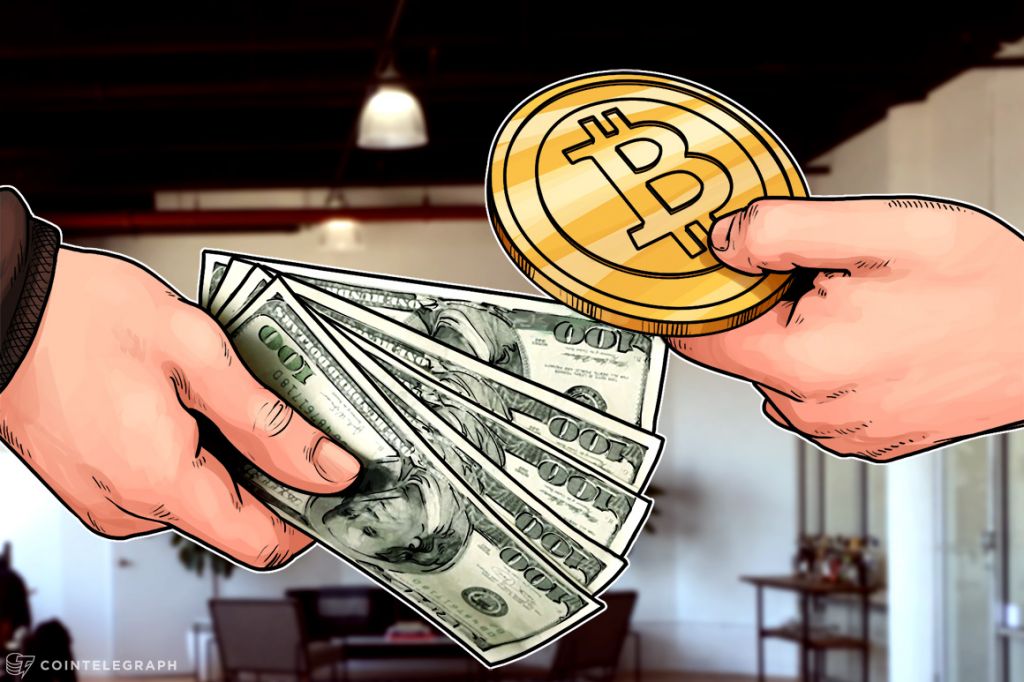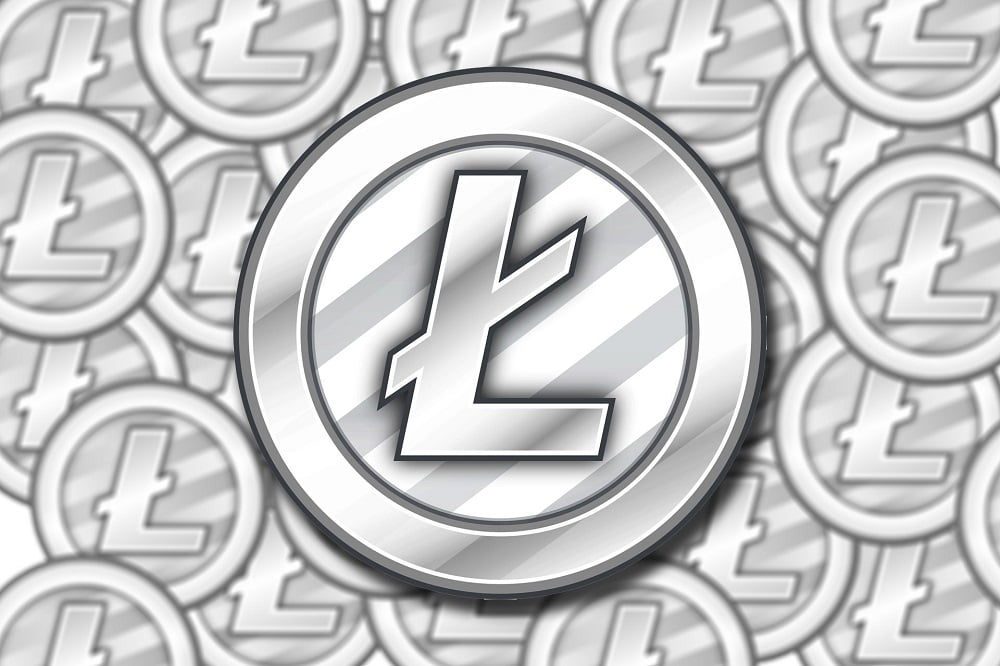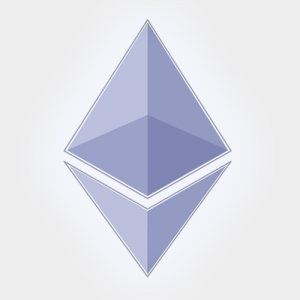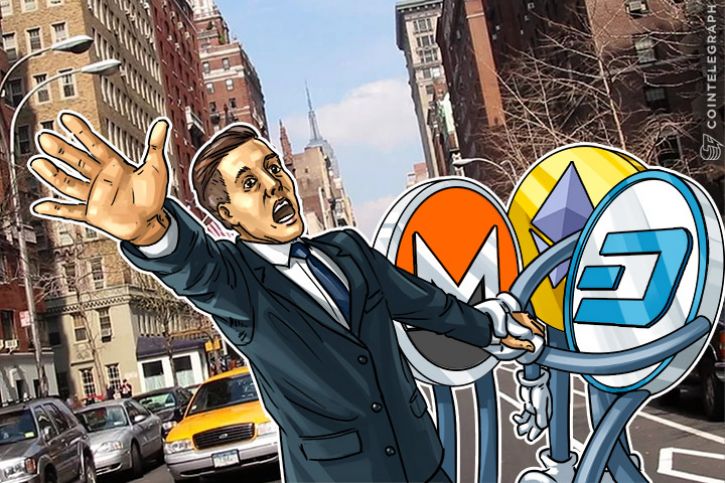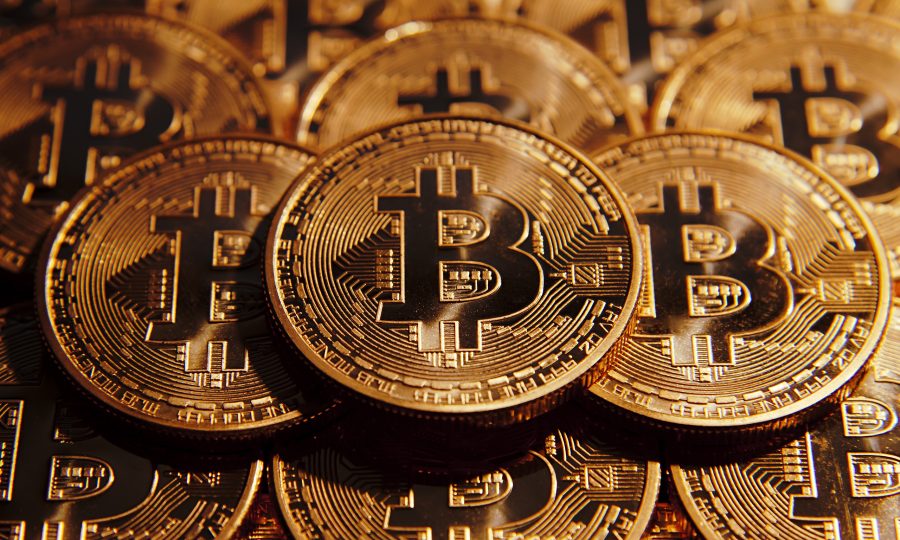
Brand New CryptoCurrency and Multi-Level Marketing
Combine Florida man, a penny stock, a brand new cryptocurrency and multi-level marketing. What could possibly go wrong? That was my thinking when Ernie Land told me about Sunshine Capital Inc and Dibcoin. Sunshine Capital which plans on acquiring businesses has Rx Smart Coffee as one of its targets, so they are taking advantage of Ernie's expertise in multi-level marketing. I became acquainted with Ernie Land when I was covering young earth creationist Kent Hovind, who having finished his sentence is still working on getting his original conviction reversed. I think there are some tax issues that the Sunshine Capital people may be making light of, but we'll save them for the end while I give you some background.
About Cryptocurrencies
The best known and most used cryptocurrency is bitcoin. A website that tracks the cryptocurrency market indicates that the value of the over 700 currencies that it tracks is just shy of $27 billion. Of that over $18 billion is represented by the over 16 million circulating bitcoins which are worth, as I write this $1,130.72 each. Two other currencies, Etherium and Ripple, have more than a billion dollars in market capitalization. There are six others with capitalization over $100 million.
To compare all this to another form of currency that allows confidential transactions and holds value pretty well there are over one trillion dollars worth of hundred dollar bills in circulation. So Benjamin Franklin is holding his own for now. Bitcoin has already topped pictures of George Washington and Thomas Jefferson combined. It tops the $14 billion worth of pictures of Abraham Lincoln and is close to old Alexander. Maybe there will be a Broadway musical called Bicoin in a couple of centuries. Of course the actual dollar money supply is more complicated than all that green paper floating around, but I will leave it to an economist as to whether the proper comparison to cyrtocurrencies is M0 or M1 or M2, etc.
The two most important concepts to understand if you want to understand bitcoin are the blockchain and mining. I want you to make a study of them and then explain them to me. As tax preparers go, I'm pretty good at math. As it happens, though, you learn all the math you need to do tax work by the fourth grade. Here is the important part for you and me to know in order to evaluate dibcoin. Bitcoin "mining" which somehow insures the integrity of the blockchain (thereby making sure that each bitcoin is only owned by one "wallet") requires the expenditure of significant computer resources. It is hard and scheduled to keep getting harder which is what insures the scarcity of bitcoins. That and people losing the keys to their wallets which is kind of like all those Spanish ships full of doubloons that have sunk reducing the hard money supply.
What Is Special About Dibcoins?
I spoke with Honson Luma, VP of Sunshine Capital, Inc and DIB Funding, Inc who is the creator of Dibcoin. He did his best to explain to me the concept of "Omni Layer". It was a little like me trying to explain the 704(b) regulations and the concept of "partners interest in the partnership" to my son's dog. At any rate according to its website Omni Layer is an "open-source, fully decentralized asset platform on the Bitcoin Blockchain". It goes on to further elucidate:
Omni is a platform for creating and trading custom digital assets and currencies. It is a software layer built on top of the most popular, most audited, most secure blockchain — Bitcoin. Omni transactions are Bitcoin transactions that enable next-generation features on the Bitcoin Blockchain. Our reference implementation, Omni Core is an enhanced Bitcoin Core that provides all the features of Bitcoin as well as advanced Omni Layer features.
Got that? Good. . At any rate, the important point is that the Omni Layer allows anybody who wants to to set up a new crytpocurrency without investing a lot in infrastructure. Dibcoin is number 89 on the Omni platform. There is no mining of Dibcoins. They are pre-mined. All 5 billion of them started out being owned by Dib Funding Inc. Here is the genius part.
DIBCOIN will be the first cryptocurrency to be used by a public company to acquire existing profitable private companies. Sunshine Capital will use DIBCOIN as a monetary instrument, to acquire companies and assets, building its portfolio with no debt.
About Sunshine Capital?
Dib Funding owned most of Sunshine Capital Inc, but if you want a piece, you can buy some on the OTC. As I write this Sunshine is priced at $4 per share. Not that I was going to buy it, but when I asked my investment adviser who works for one of those big outfits, he told me that I probably couldn't buy it through his firm. They consider anything under ten bucks a share to be a "penny stock" and way too volatile.
Sunshine Capital, Inc's unaudited financial statements do not appear all that impressive with just over $20,000 in gross income in 2016 for a net loss a bit over $30,000. Assets consist of about $2,500 in cash. Among the liabilities are notes payable of $5,500 to James Scheltema, a recent president of Sunshine who pleaded guilty to filing false tax returns and tax evasion in January. Here is where the genius comes back in.
In February, most of Sunshine's stock was cancelled leaving 16,977,000 shares. President Adam Petty commented:
"The controlling shareholder has canceled their shares to guarantee the success of this Company and to increase the book value of all remaining shares outstanding," Stated, Adam Petty, President and CEO of Sunshine Capital, Inc. "With the cancellation of these shares, every penny ($.01) DIBCOIN trades at, once trading commences in the near future, will instantly provide Sunshine Capital, Inc. access to nearly $40,000,000 in capital and results in a net asset value, of Sunshine Capital, Inc., stock by approximately two dollars and thirty-five cents ($2.35) per share."
With the commencement of trading of Dibcoin on Livecoin, Honson Luma exclaimed:
"In months, we have done something that takes other companies years to achieve!" exclaimed Honson Luma, Vice President of Sunshine Capital, Inc. "What the investment world needs to understand is that for every penny DIBCOIN trades at, it gives our Company approximately $40 Million Dollars in liquid assets. So, a single penny should increase Sunshine Capital, Inc.'s book value approximately $2.35 a share."
According to Livecoin, the last Dibcoin transaction was at 0.00087 BTC, which works out to about a dollar. Dibcoin at a buck, seems to be what they were shooting for when they retired all corporate debt with Dibcoins at a dollar. According to the financial statements Sunshine had less than $12,000 in liabilities at 12/31/16, so maybe that is not so dramatic. Nonetheless, Dibcoins at a buck means Sunshine is worth $235 per share. And you can get it for $4 if you have a broker without a picky compliance department.
That's the compelling story I get from Ernie Land and Honson Luma. I really like Ernie, but he can sometimes get carried away. When I gave him a hard time about how his fellow Hovindicator was bad mouthing Jesuits, I told him that I had eight years of Jesuit education (Xavier High School 1970, College of the Holy Cross 1974). Somehow, that got translated into me having been a Jesuit for eight years, which would be equivalent to my four years as a JROTC cadet in the late sixties making me a Vietnam veteran. Ernie believes that the world is about six thousand years old and dinosaurs existed contemporaneously with humans. Honson Luma emphasized to me that Rx Smart Coffee is just one of Sunshine's potential acquisitions and they are not staking their credibility on Ernie's endorsement. Ernie, himself, has not claimed a big role in Sunshine. He does see this as his chance to make up for missing out on the bitcoin run-up.
The Tax Problem
In my discussion with Honson Luma he seemed to be of the opinion that virtual currency only generates taxable income when it is exchanged for US dollars. The guidance issued by IRS in Notice 2o14-21 indicates that virtual currency is property. Generally when property is exchanged for other property gain or loss is recognized. If we assume that Sunshine has zero basis in its Dibcoins, that means it will recognize gain on each acquisition. That might mean that it only has $3 billion to work with after tax, give or take. But it could be worse. Consider this from Notice 2012-21
Q-8: Does a taxpayer who “mines” virtual currency (for example, uses computer resources to validate Bitcoin transactions and maintain the public Bitcoin transaction ledger) realize gross income upon receipt of the virtual currency resulting from those activities?
A-8: Yes, when a taxpayer successfully “mines” virtual currency, the fair market value of the virtual currency as of the date of receipt is includible in gross income. See Publication 525, Taxable and Nontaxable Income, for more information on taxable income.
Was the listing on Livecoin a taxable event equivalent to a bitcoin miners success? I actually don't think so, but it would cause me to lose a bit a sleep. The demand for dollars to pay taxes from the gains recognized on the acquisition do, in my mind, pose a threat to the structure, as the need to convert dibcoins to dollars could drive their value down. You will likely to be able to buy some of the Rx Smart Coffee Gentlemen's Blend for dibcoins before long, in the event you are having issues with your male vigor. I expect you will have to use dollars to pay your taxes for the foreseeable future, though. We'll see if the whole enterprise lasts long enough for taxes to be a problem. I do have my doubts.
Other Opinions
I got some thoughts on the future course of Sunshine Capital Inc from Alma Angotti, Managing Director, Global Investigations & Compliance, Navigant Consulting. She wrote me:
Securities regulators will likely have concerns about the accuracy of the company’s disclosures, particularly if and when they start to invest in other companies. This reminds me of a blind pool or blank check offering in which the company offering securities does not identify a specific acquisition target or line of business. Those kinds of investments can be risky. The stock price of Sunshine Capital has been very volatile.
As for the Dibcoin, regulators and law enforcement will focus on the anonymity, cross border / cross currency capability and lack of regulatory oversight. Because of these attributes, the product could be used to commit tax evasion, money laundering and fraud. Although they say that Dibcoin is built on top of the bitcoin blockchain, that does not necessarily mean that it is tied to the price of bitcoin. Since there is no mining of Dibcoin, and there is already a certain amount in circulation (5 billion), the price of Dibcoin is set by the issuer. Regulators will likely closely scrutinize the transactions executed through the exchange of Dibcoin.
Most of the "coverage" of dibcoin has been press releases from Sunshine Capital, Inc or Dib Funding, Inc. A post on beyondbitcoin expressed extreme skepticism.
Wouldn't It Be Great If This Could Work?
More than anything else Dibcoin reminds me of a short story by Poul Anderson titled Fairy Gold which is nicely summarized here. A young man is rewarded for helping an elf with fairy gold. Fairy gold is just like real gold at night but turns into trash when the sun rises. A series of transactions occur. The last one is by the hero's former girl friend who sells her grandmother's business, before the coin goes poof, but it is fine because now she can live happily ever after with the hero. I'm sure a feminist critique of the story would find it problematical, but that's not going to bother Poul Anderson who died in 2001.
It also reminds me a bit of the real story of Alfves dos Reis, chronicled in The Man Who Stole Portugal. Reis convinced the British bank note company working for the Bank of Portugal to print 200,000 500 escudo notes for him and his crew. His plan, which almost succeeded was to use some of the money to buy control of the Bank of Portugal, which would have retroactively made his notes valid.
Of course everything that Adam Petty and Honson Luma and Ernie Land are doing is in the open. The only thing I find a bit disingenuous is the notion that somehow having a public company hold all the dibcoins makes them more valuable. Particularly a public company that based on its own financial statements does not otherwise appear to be worth the powder to blow it away. I might also add that even after all this time, I'm still not a believer in bitcoins, more or less the gold standard of cryptocurrencies, as a long run store of value. In the MIT Technology Review Jamie Condiffe wrote"Why Bitcoin's $1,000 Value Doesn't Matter". Quoting the Financial Times we get:
For context, the Central Intelligence Agency put the planet’s stock of broad money—notes, coins, and various forms of bank account—at $82tn as of the end of 2014. On the CIA figures, the value of bitcoins hashed into existence is similar to the broad money total for Uzbekistani soms. With apologies to Tashkent, the value of soms and bitcoins, and the number of people for whom they are relevant pieces of information in the world of modern finance, both round to zero.
So maybe the Dibcoin believers will be able to mock me in a couple of years. I can take it.
Chuck Reynolds
Contributor











